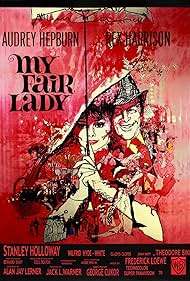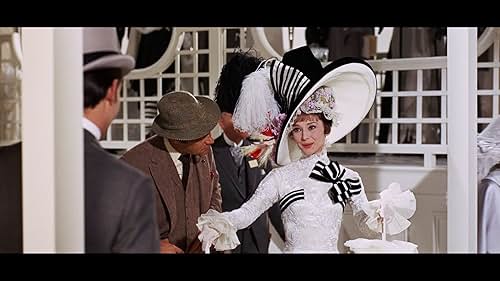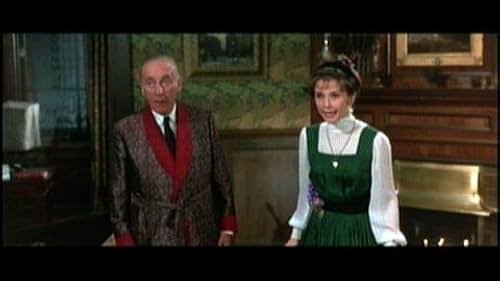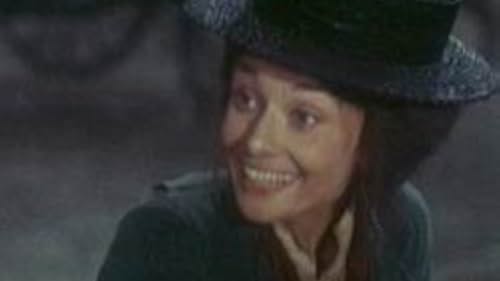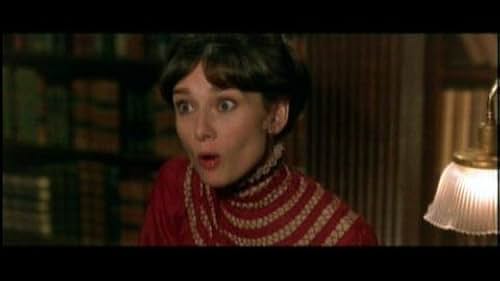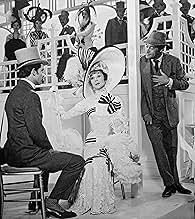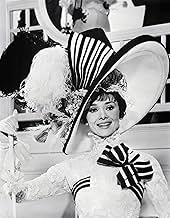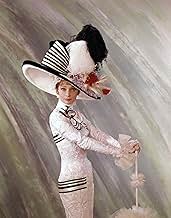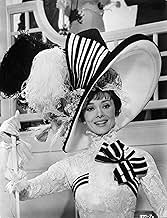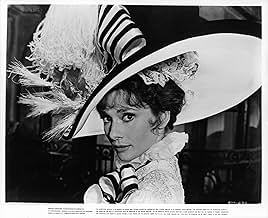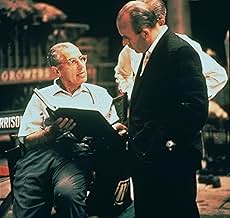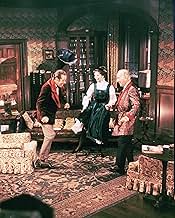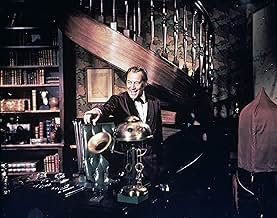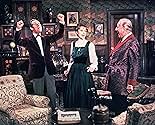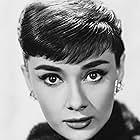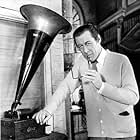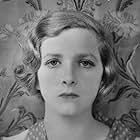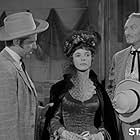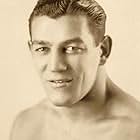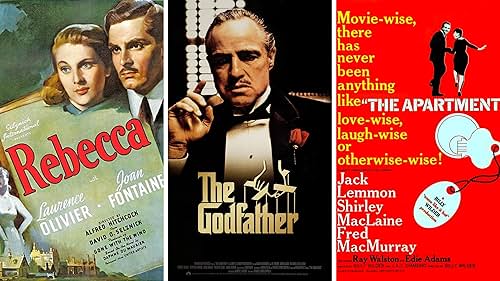Il Professore di Fonetica, Henry Higgins, accetta di scommettere che può rendere la fioraia, Eliza Doolittle, presentabile nell'alta società.Il Professore di Fonetica, Henry Higgins, accetta di scommettere che può rendere la fioraia, Eliza Doolittle, presentabile nell'alta società.Il Professore di Fonetica, Henry Higgins, accetta di scommettere che può rendere la fioraia, Eliza Doolittle, presentabile nell'alta società.
- Vincitore di 8 Oscar
- 25 vittorie e 13 candidature totali
Elizabeth Aimers
- Cockney
- (non citato nei titoli originali)
Helen Albrecht
- Ascot Extra
- (non citato nei titoli originali)
John Alderson
- Jamie - Doolittle's crony
- (non citato nei titoli originali)
Mary Alexander
- Cockney
- (non citato nei titoli originali)
Gertrude Astor
- Cockney
- (non citato nei titoli originali)
LaWana Backer
- Ad Lib at Church
- (non citato nei titoli originali)
Walter Bacon
- Ball Guest
- (non citato nei titoli originali)
Best Picture Winners by Year
Best Picture Winners by Year
See the complete list of Best Picture winners. For fun, use the "sort order" function to rank by IMDb rating and other criteria.
Trama
Lo sapevi?
- QuizCostume designer Cecil Beaton created 1,500 costumes for this movie, with the exception of the pearl white gown Hepburn wears to the Embassy Ball, an original Edwardian specimen Beaton found in an antique shop.
- BlooperWhen Prof. Higgins sings "An Ordinary Man" he turns on several phonographs, seconds later he turns off one of them but all of the sounds stop.
- Citazioni
Eliza Doolittle: The difference between a lady and a flower girl is not how she behaves, but how she is treated.
- Curiosità sui creditiIn the posters, playbills and the original cast album for the stage version of "My Fair Lady", the credits always read "based on Bernard Shaw's 'Pygmalion' ", letting the audience know what play "My Fair Lady" was actually adapted from. The movie credits simply read "from a play by Bernard Shaw".
- Versioni alternativeIn the remastered version of the film, some of the scene changes are changed from sudden cuts to wipe outs, as they probably were when the film was released. When CBS Fox released it on video originally, they were changed to sudden cuts.
- ConnessioniFeatured in Toast of the Town: Episodio #18.17 (1965)
- Colonne sonoreWhy Can't the English?
(1956) (uncredited)
Music by Frederick Loewe
Lyrics by Alan Jay Lerner
Performed by Rex Harrison, Wilfrid Hyde-White, and Audrey Hepburn
Recensione in evidenza
There's a lot of negative things been said about Audrey Hepburn's interpretation of the role of Eliza. Perhaps she's not ideal in the earliest scenes of the movie - her "dirtiness" is never quite believable - but it has to be said that despite this smallish drawback she still glows, and makes an amazing Eliza overall.
The reason for this is simple; Audrey Hepburn brings her "own spark of divine fire", (to quote Higgins) to the role and her vulnerability, mixed with her sweet, naive charm and even her wonderfully juvenile pettishness shown in "Just You Wait" all prove what a talented actress she really is. For an example of this, just watch Eliza's facial expression at Ascot, when she realises her opportunity to demonstrate her new-found mastery of the English tongue - sweetly hilarious.
MFL has been criticized as being too romanticized, too overblown. I disagree; musicals are suposed to be lavish affairs, and none pull it off quite so well as "My Fair Lady" does. It's a momentous film but it has its subtle points: watch the way in which Eliza's eyes are centred on Higgins when she enters at the ball, and the way in which the two of them stare at each other for a few seconds at the top of the stairs a few moments later.
It musn't be overlooked that, thanks to its being based on a Bernard Shaw play, "My Fair Lady" has what the great majority of musicals lack: a deeper meaning and something really quite profound to say.
The actor in the role of Colonel Pickering is a little weak, but it must be said that Rex Harrison IS Henry Higgins. In a lot of ways (in fact, in most ways) Higgins has an objectionable personality: rude, snobbish, impatient and even misogynistic, but somehow Rex Harrison pulls it all off and makes us like Higgins without betraying the character. As to romance, his song "I've Grown Accustomed to Her Face" is an ode to the kind of love which sneaks up on you. Overall, this movie is romantic, but not too sentimental. It has just enough romance to be dramatically fulfilling, but it never becomes soppy or mawkish. The word "love" is never mentioned at all and the two leads never even kiss. The famous end sequence is perfect and does the movie justice; after all, a big happy bow tied around a perfect romance at the end would simply not fit with everything we have learned about the two protagonists.
The reason for this is simple; Audrey Hepburn brings her "own spark of divine fire", (to quote Higgins) to the role and her vulnerability, mixed with her sweet, naive charm and even her wonderfully juvenile pettishness shown in "Just You Wait" all prove what a talented actress she really is. For an example of this, just watch Eliza's facial expression at Ascot, when she realises her opportunity to demonstrate her new-found mastery of the English tongue - sweetly hilarious.
MFL has been criticized as being too romanticized, too overblown. I disagree; musicals are suposed to be lavish affairs, and none pull it off quite so well as "My Fair Lady" does. It's a momentous film but it has its subtle points: watch the way in which Eliza's eyes are centred on Higgins when she enters at the ball, and the way in which the two of them stare at each other for a few seconds at the top of the stairs a few moments later.
It musn't be overlooked that, thanks to its being based on a Bernard Shaw play, "My Fair Lady" has what the great majority of musicals lack: a deeper meaning and something really quite profound to say.
The actor in the role of Colonel Pickering is a little weak, but it must be said that Rex Harrison IS Henry Higgins. In a lot of ways (in fact, in most ways) Higgins has an objectionable personality: rude, snobbish, impatient and even misogynistic, but somehow Rex Harrison pulls it all off and makes us like Higgins without betraying the character. As to romance, his song "I've Grown Accustomed to Her Face" is an ode to the kind of love which sneaks up on you. Overall, this movie is romantic, but not too sentimental. It has just enough romance to be dramatically fulfilling, but it never becomes soppy or mawkish. The word "love" is never mentioned at all and the two leads never even kiss. The famous end sequence is perfect and does the movie justice; after all, a big happy bow tied around a perfect romance at the end would simply not fit with everything we have learned about the two protagonists.
- eliza-doolittle
- 27 ago 2003
- Permalink
I più visti
Accedi per valutare e creare un elenco di titoli salvati per ottenere consigli personalizzati
Everything New on Paramount+ in November
Everything New on Paramount+ in November
Freshen up your Watchlist with the latest selection of streaming movies and TV shows coming to Paramount+ this month.
Dettagli
- Data di uscita
- Paese di origine
- Sito ufficiale
- Lingua
- Celebre anche come
- Moja draga dama
- Luoghi delle riprese
- Stage 16, Warner Brothers Burbank Studios - 4000 Warner Boulevard, Burbank, California, Stati Uniti(Ascot & Ballroom scenes)
- Azienda produttrice
- Vedi altri crediti dell’azienda su IMDbPro
Botteghino
- Budget
- 17.000.000 USD (previsto)
- Lordo Stati Uniti e Canada
- 72.560.711 USD
- Fine settimana di apertura Stati Uniti e Canada
- 354.764 USD
- 17 feb 2019
- Lordo in tutto il mondo
- 72.684.726 USD
- Tempo di esecuzione2 ore 50 minuti
- Colore
- Mix di suoni
- Proporzioni
- 2.20 : 1
Contribuisci a questa pagina
Suggerisci una modifica o aggiungi i contenuti mancanti

Divario superiore
By what name was My Fair Lady (1964) officially released in India in Hindi?
Rispondi